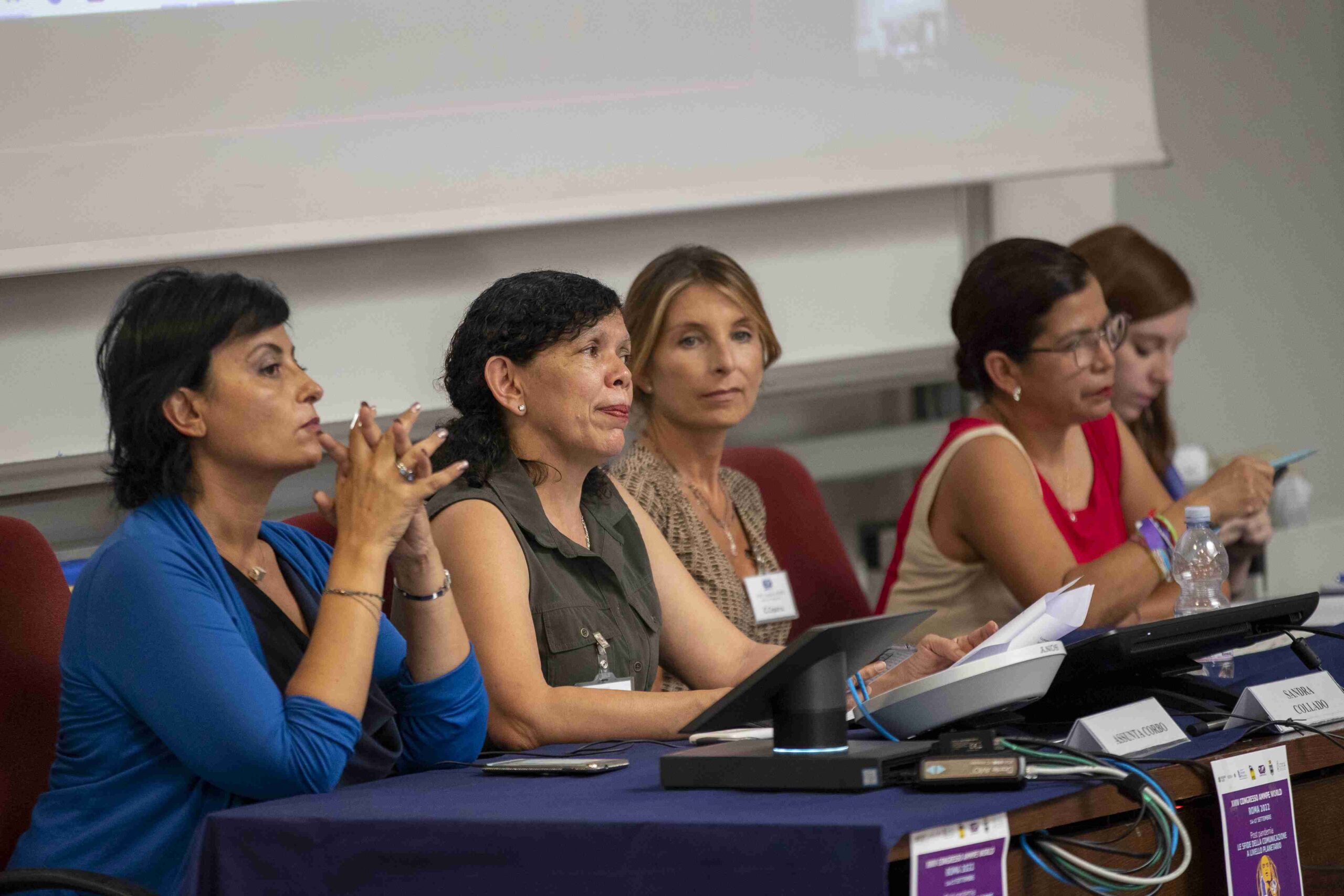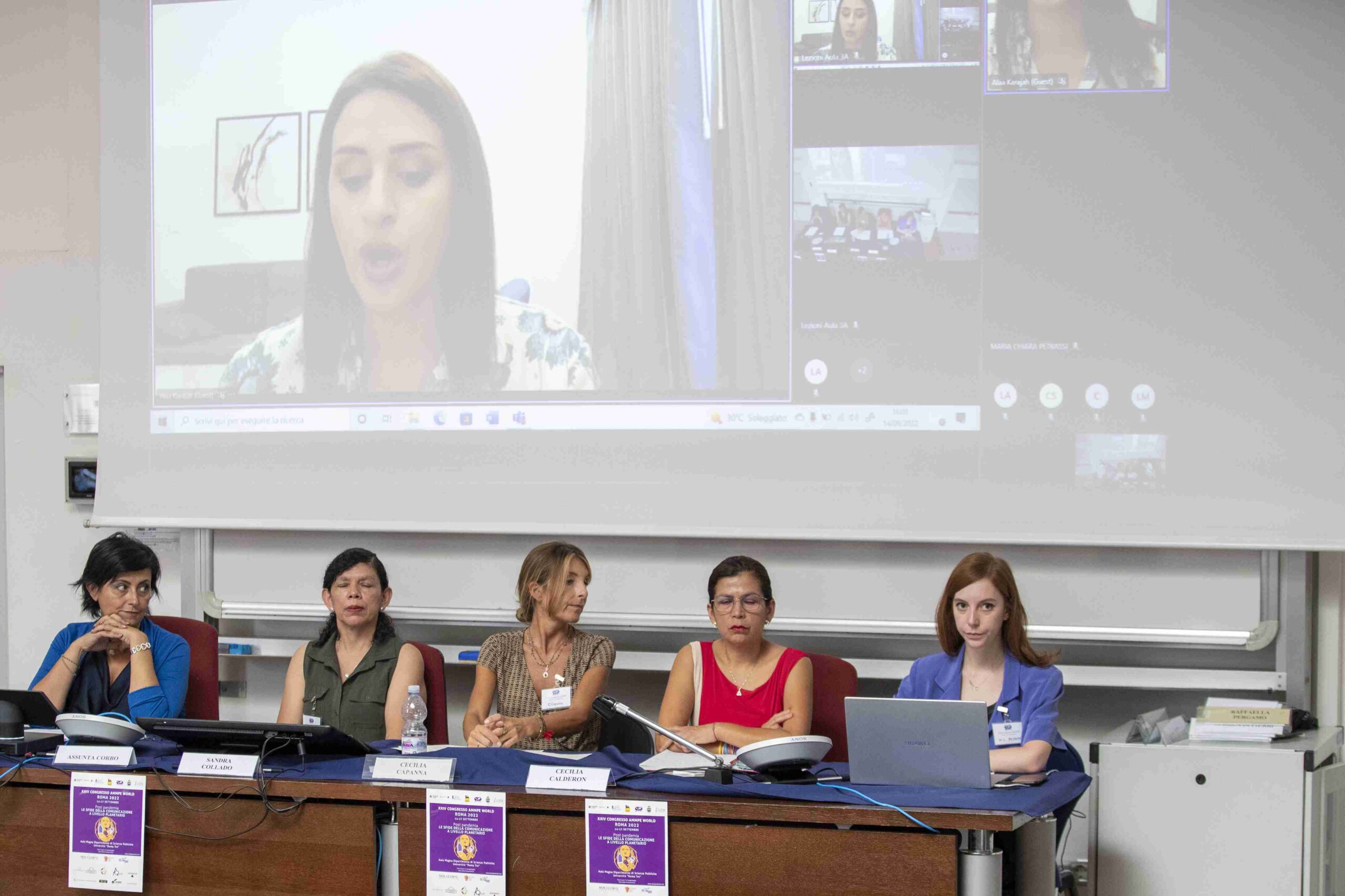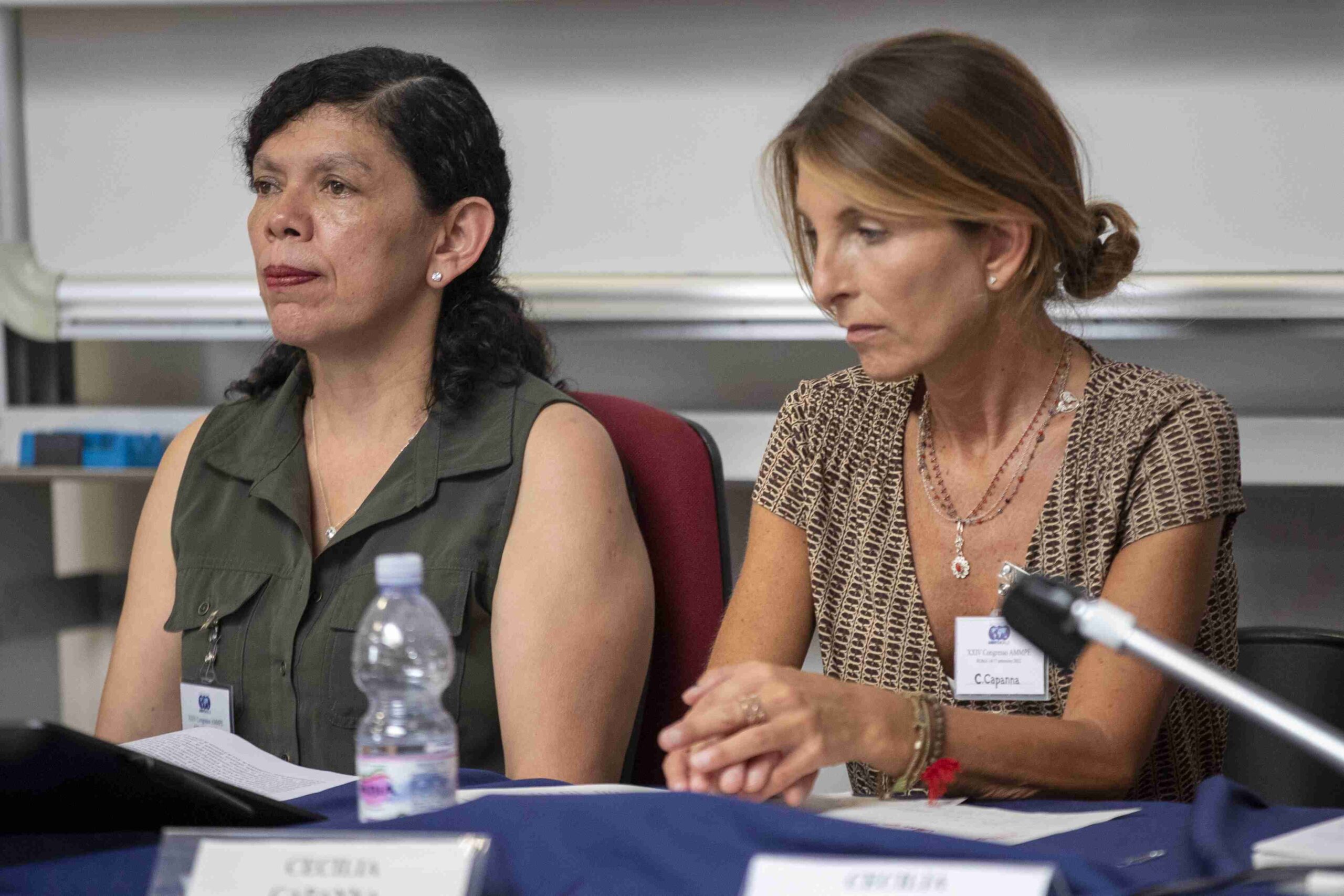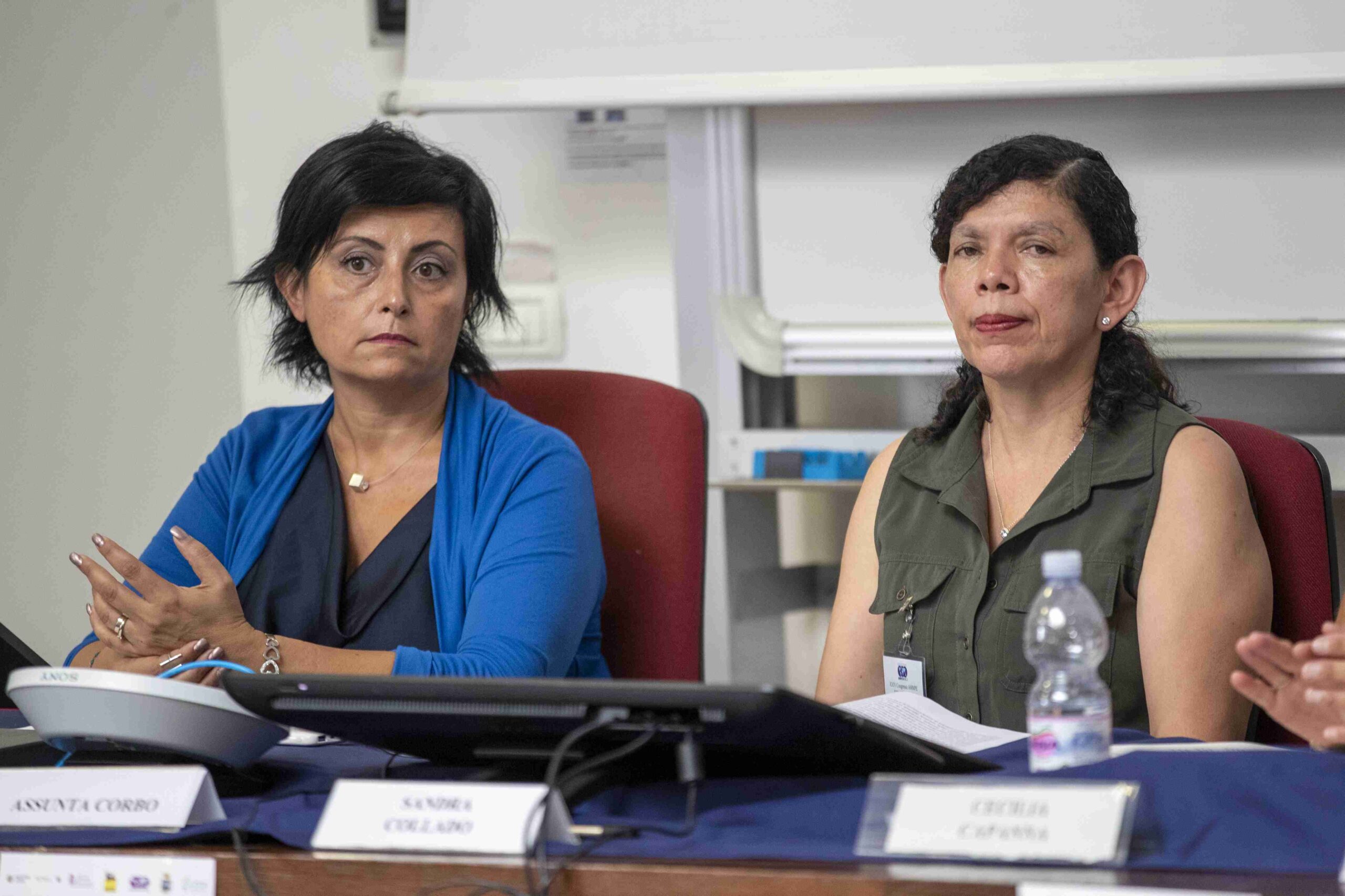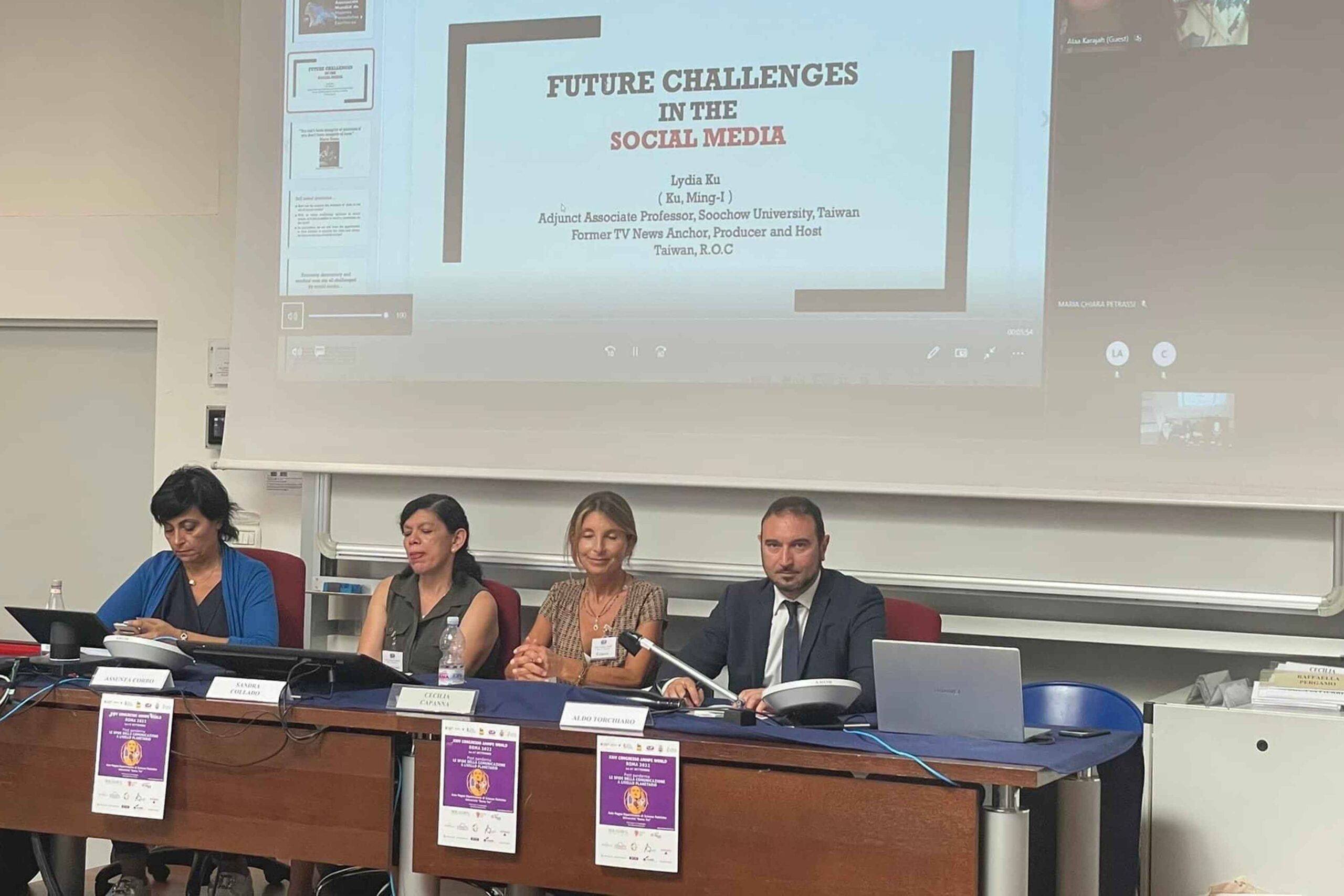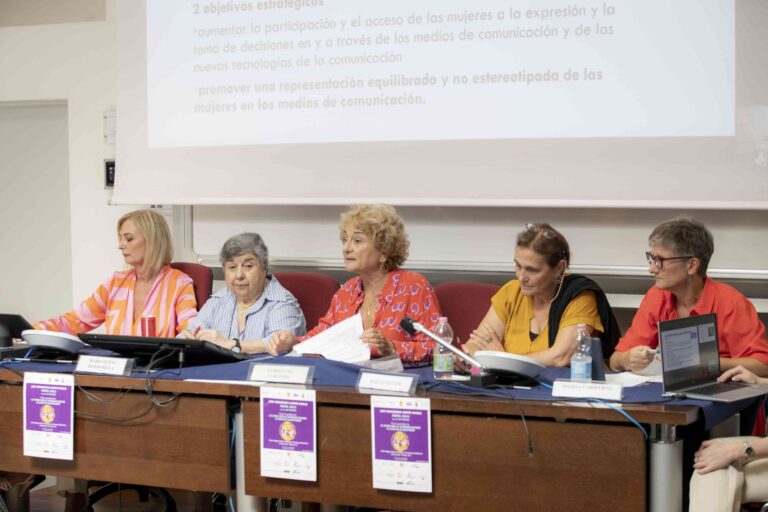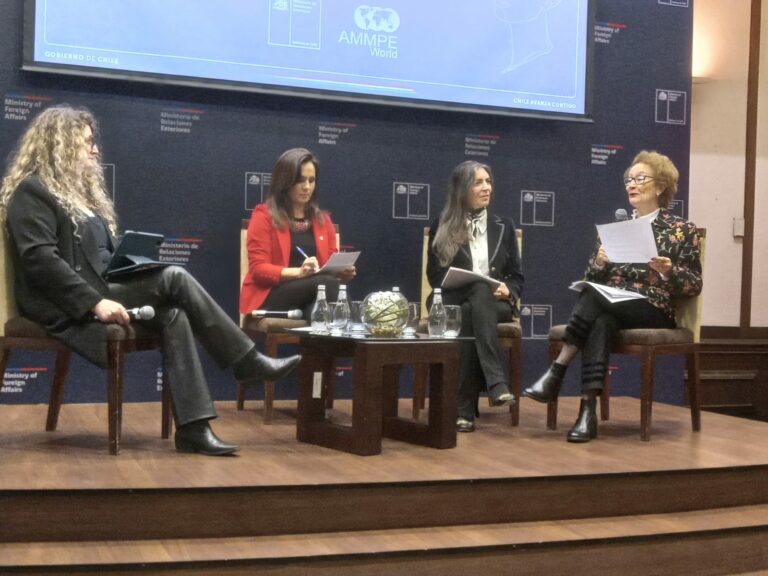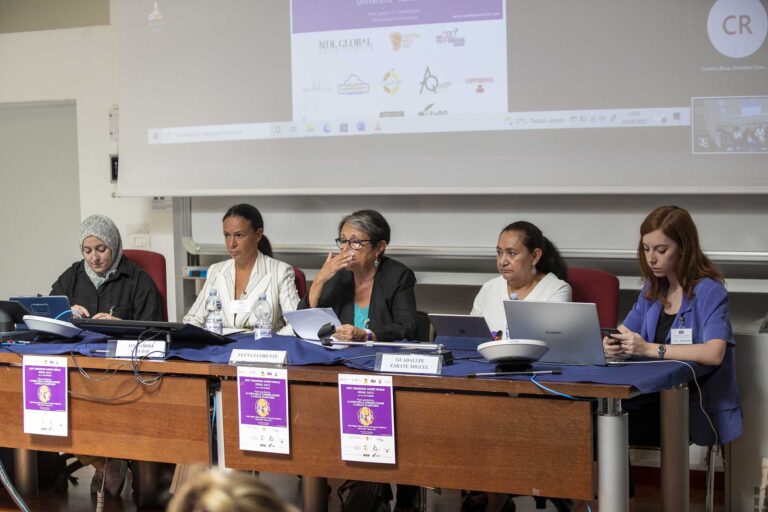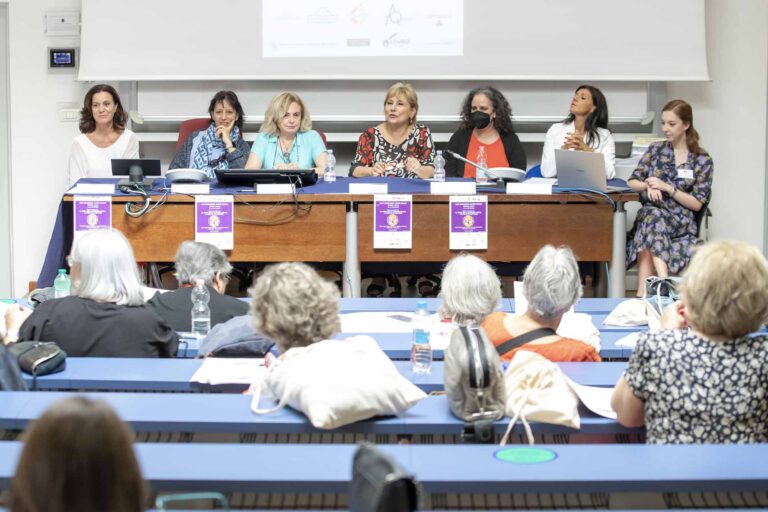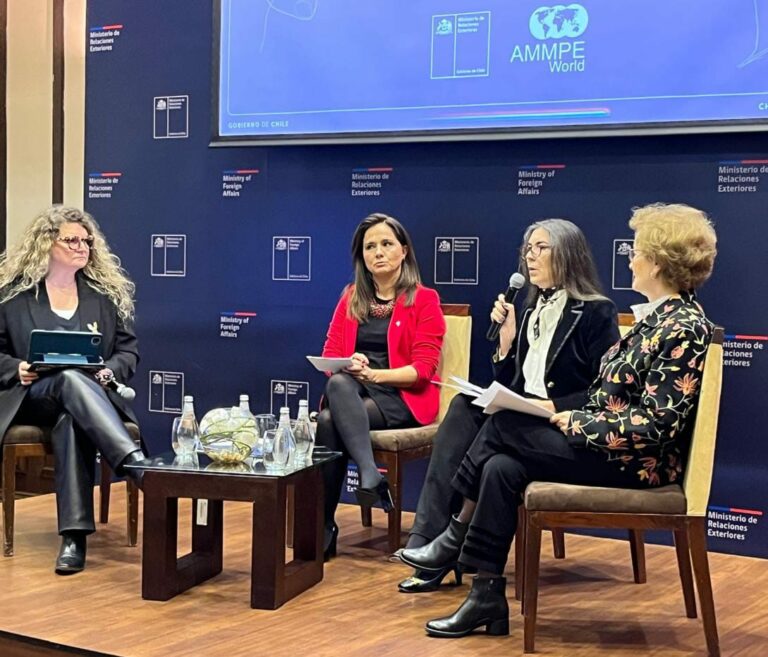The new challenges of journalism: gender and new technologies
MODERATOR Cecilia Capanna
SPEAKERS SPEAKERS
Cecilia Capanna begins by recalling that already with the arrival of the Internet 30 years ago, but above all with the arrival of social media in the last 15 years, humanity has undergone a clear anthropological change, rather than sociological, cultural and even political. She affirms that although, on the one hand, immediate connectivity on a global level has its great advantages and represents a concrete democratic opportunity by extending the possibility of accessing any type of information to everyone, in fact we have been overwhelmed by the negative sides of this new system that for this is dualistic.
In our field in particular, she adds, that of information, from the univocal verticality of the traditional system for which whoever receives the information has a passive role, we have passed to the one-to-one horizontality which, instead of representing a plus for the democratic discussion and the search for synthesis has proved to be the tomb of democracy.
Furthermore, the pandemic has given a huge boost to digital and as a result people today almost exclusively resort to online print and even social media to find out. The algorithm that generates polarism and hatred reigns supreme. The network is infested with fake news, fake profiles and bots. In the words of Roberto Savio, a globalist journalist and expert in communications, “we have passed from the Gutenberg era to the Zuckerberg era”. An era that as it launches into progressive acceleration towards technological progress, drags humanity back from a cultural point of view. The civil, social and human rights, won with so much effort after long battles, are crumbling. Especially for women, the web has no mercy, sexism is rampant hidden behind the keyboard.
Lydia Ku, Lydia Ku, Adjunct Associate Professor, University of Soochow (Taiwan), TV presenter and producer, through a video she examined all the problems that digital is causing to information and journalism, focusing her analysis on the dualism of social media and the threat of fake news. In his opinion, the community platform has undoubtedly made changes in the way people communicate, so the biggest impact on the world is that the community has become a tool of cognitive warfare. We must be very aware of this aspect and also be vigilant so that the impact and strengthening of fake news and false information does not lead to the inability to communicate different opinions, with increasingly harmful consequences for democracy.
Aldo Torchiaro, Aldo Torchiaro, PHD journalist in political communication, author of the book “L’inganno Felice” (2020, ed. Cooper) on the deception of fake news and on what he calls the “far web” spoke about the gender disparities of Italian journalism . “On the front pages of 102 newspapers and in the summaries of 56 news editions, the presence of women in the news is only 17% and the signatures of women are 20%, despite the fact that colleagues represent 40% of the category” and this obviously not for lack of merit. The system is male chauvinist and must be unhinged. His proposal, as a “male testimonial”, is interesting to support the battle for gender equality in the profession starting from language, especially in our digital times in which sexism is rampant.
Ala’a Karajah, escritora y presentadora de televisión, habló sobre el dualismo de lo digital. El nuevo sistema de información ha demostrado ser una gran oportunidad democrática, de hecho, dio voz a la Primavera Árabe de 2011, por ejemplo. Al mismo tiempo, las noticias falsas amenazan la información y la democracia.
From her point of view, the solution must be sought “today more than ever in the complementary relationship between traditional printing platforms and social media platforms, based on balance and without the logic of profit, each party needs the other, and if they are disconnected, social networks will further fall into the trap of fake news and disinformation, moreover, if we do not take cover, the press will lose very important mass platforms.
Assunta CorboAssunta Corbo, journalist, founder of “Constructive Network” and director of “News 48”, intervened by presenting a constructive journalistic solution to the problem of hatred fomented by digital communication: changing the way of presenting news through the appropriate and inclusive choice of words . “Through the constructive stories it is possible to outline new paths that educate the reader to welcome and respect”.
Sandra Collado, radio presenter and producer of the radio program “Mujeres y Universidad”, shared her experience. Her program is proving that “involving and telling successful women from the university environment is a way to tackle sexist clichets and gender inequality”. She underlined how in the 21st century, with new communication technologies, programs produced and conducted by women continue to be carried out with the same effort that allowed women’s voices to emerge and to assert their rights. In Radio Universidad, for 30 years women have had the task of informing and sharing knowledge on the radio, in particular in the context of actions in favor of equity and gender equality, especially in the academic field.
Sandra Collado, radio presenter and producer of the radio program “Mujeres y Universidad”, shared her experience. Her program is proving that “involving and telling successful women from the university environment is a way to tackle sexist clichets and gender inequality”. She underlined how in the 21st century, with new communication technologies, programs produced and conducted by women continue to be carried out with the same effort that allowed women’s voices to emerge and to assert their rights. In Radio Universidad, for 30 years women have had the task of informing and sharing knowledge on the radio, in particular in the context of actions in favor of equity and gender equality, especially in the academic field.
